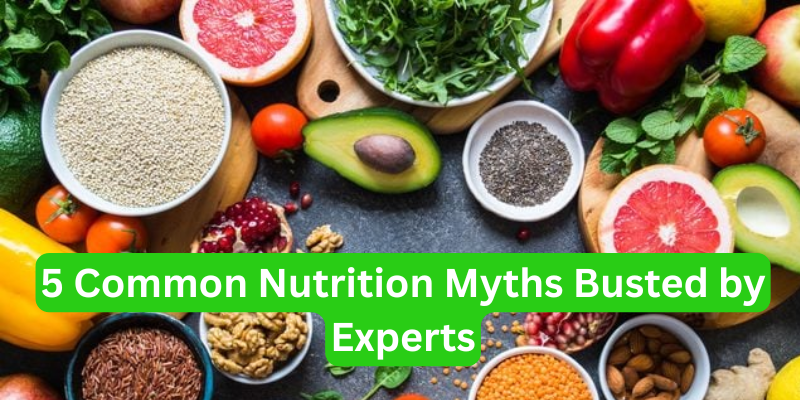In the age of social media and diet trends, nutrition myths spread faster than ever. Unfortunately, these myths can mislead people and disrupt healthy habits. We’ve asked top nutrition experts to set the record straight and debunk the most common myths once and for all.
1. Myth: Carbs Are Bad for You
Carbohydrates have long been blamed for weight gain and health issues. But not all carbs are created equal.
The Truth:
Your body needs carbs for energy. Whole grains, fruits, and vegetables are complex carbs packed with fiber, vitamins, and minerals. It’s refined carbs—like white bread and sugary snacks—you should limit.
Expert Tip: Choose whole grains over processed carbs for sustained energy.
2. Myth: You Should Avoid All Fats
Low-fat diets were once all the rage, but the truth about fat is far more nuanced.
The Truth:
Fats are essential for hormone production, brain health, and nutrient absorption. The key is to consume healthy fats—like those from avocados, nuts, seeds, and olive oil—while avoiding trans fats and excessive saturated fats.
Expert Tip: Focus on incorporating more unsaturated fats into your meals.
3. Myth: Detox Diets Cleanse Your Body
Detox teas and juice cleanses are often marketed as miracle fixes, but do they actually work?
The Truth:
Your liver and kidneys already do a great job of detoxifying your body. Most detox diets lack sufficient calories and nutrients and can be harmful if done long-term.
Expert Tip: Instead of detoxing, nourish your body with whole foods and plenty of water.
4. Myth: Eating After 8 PM Causes Weight Gain
This popular diet myth makes many people avoid evening snacks out of fear they’ll pack on pounds.
The Truth:
Weight gain is more about what and how much you eat—not when you eat. Eating a healthy, portion-controlled snack at night won’t derail your diet.
Expert Tip: If you’re hungry at night, opt for a light snack like Greek yogurt or a banana with almond butter.
5. Myth: Natural Sugar Is Always Healthy
People often assume that if sugar is from a “natural” source like honey or agave, it’s automatically better for you.
The Truth:
Natural sugars still impact blood sugar levels and should be consumed in moderation. The healthiest sugars come from whole fruits, which also provide fiber and nutrients.
Expert Tip: Treat natural sweeteners the same way you would table sugar—use sparingly.
5 Most Common Questions About Nutrition Myths
Q1: Is it okay to completely cut out carbs or fats to lose weight?
Answer: No. Cutting out entire macronutrient groups can lead to nutritional deficiencies. Balanced meals with proper portions of carbs, fats, and protein are the best approach.
Q2: Are all processed foods bad for health?
Answer: Not necessarily. Minimally processed foods like frozen vegetables or canned beans can be healthy. It’s ultra-processed snacks high in sugar, salt, and additives that are harmful.
Q3: Can superfoods replace a balanced diet?
Answer: Superfoods are great additions, but they can’t replace a well-rounded diet. You need a variety of foods to get all essential nutrients.
Q4: Is skipping meals good for weight loss?
Answer: Skipping meals can lead to overeating later and may disrupt metabolism. It’s better to eat regular, balanced meals throughout the day.
Q5: Are vegan or keto diets suitable for everyone?
Answer: Not always. These diets can offer benefits, but individual needs vary. Consult a registered dietitian before making drastic dietary changes.





